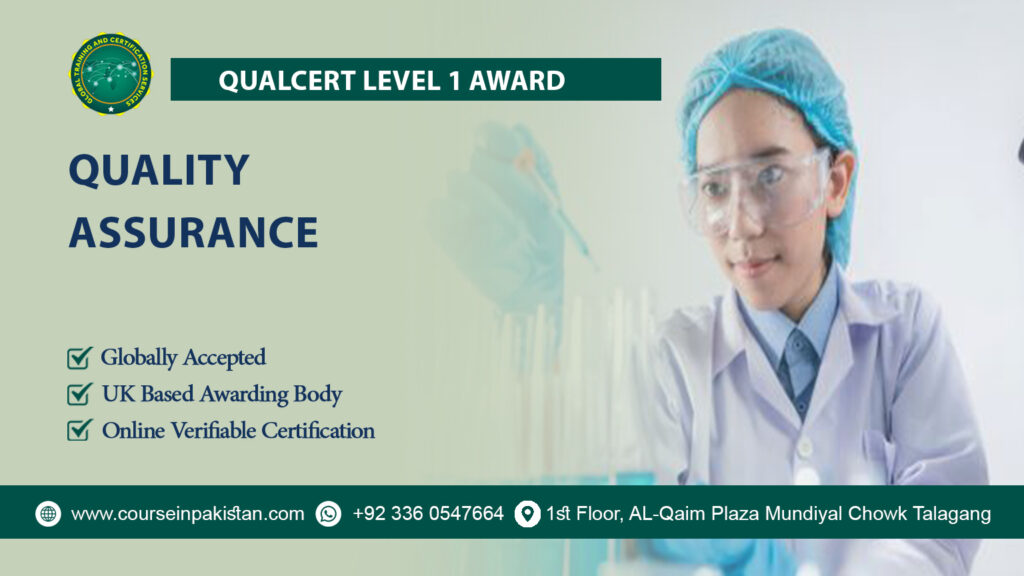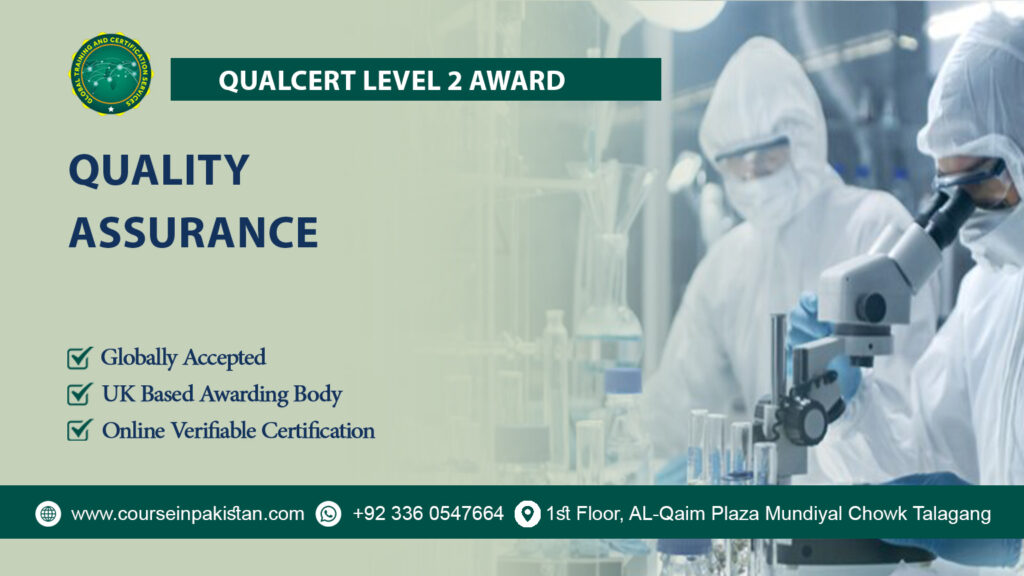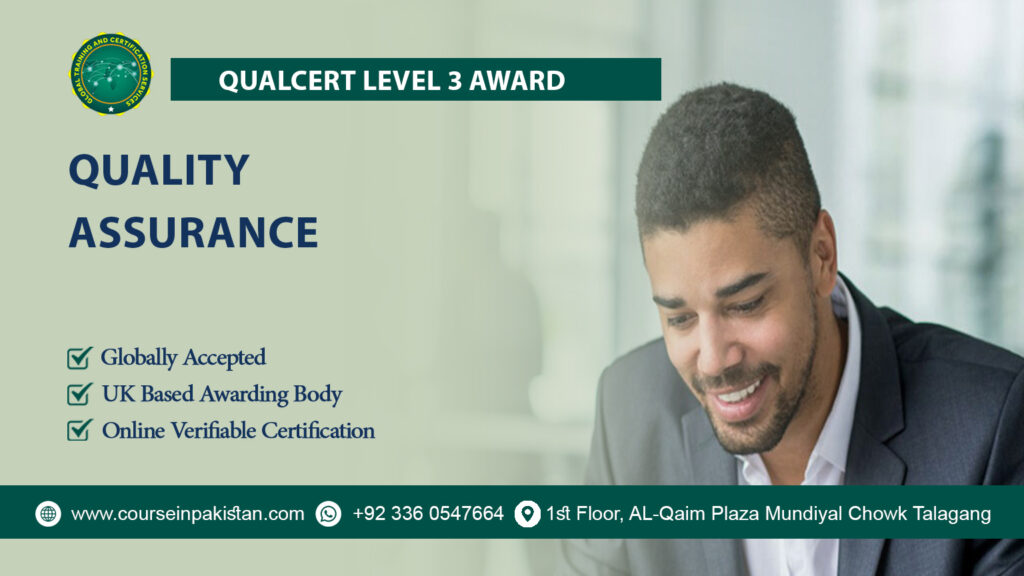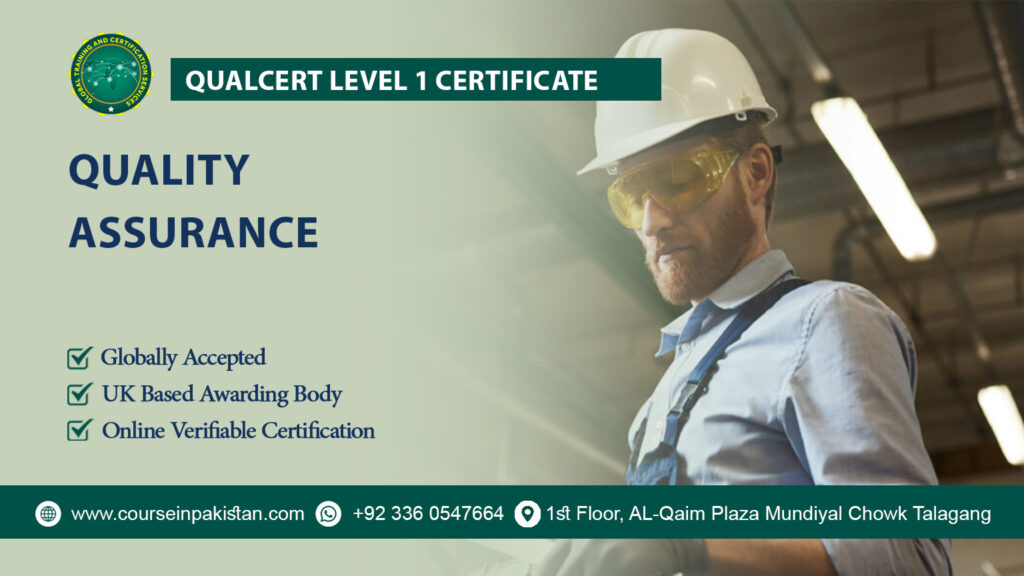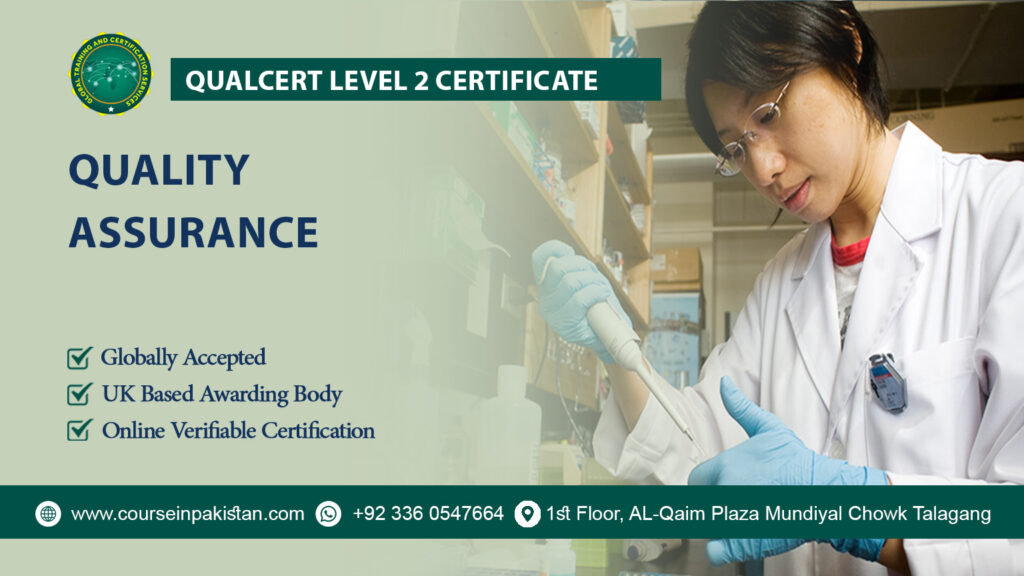Quality Control / Quality Assurance QC QA Course in Lahore
In Lahore’s rapidly evolving industrial landscape, maintaining product and service quality is no longer optional—it’s a necessity. Businesses today must adhere to strict quality standards to remain competitive, both locally and globally. This is where the concepts of Quality Control (QC) and Quality Assurance (QA) come into play.
A QC/QA course in Lahore equips professionals with the knowledge and practical skills needed to uphold quality benchmarks in a range of industries such as manufacturing, construction, pharmaceuticals, and engineering. Whether you’re starting your career or aiming to upskill, this course offers a pathway to high-demand job opportunities in Pakistan and abroad.
Understanding the Core Concepts: QC vs. QA
While Quality Control and Quality Assurance are closely related, they serve distinct purposes:
- Quality Control (QC) is a reactive process that involves identifying and correcting defects in final products or services through inspections, testing, and quality checks.
- Quality Assurance (QA) is a proactive process focused on building quality into the production cycle from the start. It emphasizes standard operating procedures, staff training, and process optimization to prevent errors before they happen.
Together, QC and QA ensure consistent delivery of safe, reliable, and compliant products and services.
Why QC/QA is Crucial in Civil, Electrical, and Mechanical Engineering
A QC/QA certification in Lahore can have a significant impact across technical sectors:
- Safety & Compliance
- In civil engineering, QC/QA ensures that structures like buildings and bridges are safe and meet regulatory standards.
- In electrical systems, it reduces risks such as electrical fires or equipment failure.
- In mechanical fields, it guarantees the durability and operational integrity of machines and components.
- Enhanced Quality & Reliability
- Civil projects benefit from rigorous material and structural inspections.
- Electrical systems gain consistency in wiring, circuits, and energy efficiency.
- Mechanical production sees reduced error rates and improved precision.
- Cost Efficiency
- Early detection of faults lowers repair costs, project delays, and material waste.
- Regular audits and process evaluations reduce breakdowns and maintenance issues.
- Customer Satisfaction
- High standards lead to fewer returns, better reviews, and stronger brand trust.
- Certified companies are more attractive to international clients and partners.
- Regulatory Adherence
- Aligns operations with international benchmarks like ISO, ASME, IEC, and local compliance codes.
Key Differences Between Quality Control and Quality Assurance
| Aspect | Quality Control (QC) | Quality Assurance (QA) |
|---|---|---|
| Definition | Detects and fixes defects in products | Prevents defects through process improvement |
| Focus | Product-oriented | Process-oriented |
| Approach | Reactive | Proactive |
| Tools | Inspection, testing, sampling | Documentation, audits, training |
| Responsibility | QC team, inspectors | Management, process developers |
| Timing | Final stage of production | Throughout production lifecycle |
Advantages of a QC/QA Course in Lahore
Enrolling in a QC/QA training course in Lahore offers the following benefits:
- Career Flexibility: Qualify for roles such as Quality Inspector, QA Analyst, Compliance Officer, or ISO Auditor.
- High Industry Demand: QC/QA professionals are sought after in local industries and international markets.
- Attractive Salaries: Certified professionals often earn more due to their specialized skills.
- Leadership Growth: Advance into supervisory or managerial positions in quality and operations.
Industries That Rely on QC/QA Professionals
Professionals trained in QC and QA are in high demand across sectors, including:
- Construction & Civil Engineering – Ensuring safe and code-compliant structures.
- Electrical & Mechanical Engineering – Managing risks and optimizing operational performance.
- Pharmaceuticals & Healthcare – Verifying lab processes and regulatory compliance.
- Manufacturing & Production – Maintaining consistent output quality and reducing product recalls.
- Oil & Gas – Overseeing safety, inspection, and preventive maintenance.
- Food & Beverage – Ensuring hygiene, shelf-life, and food safety protocols.
Global Opportunities for QC/QA Professionals
A QC/QA certification from Lahore can open doors to international careers in countries like:
- Saudi Arabia
- Qatar
- Oman
- UAE
- Canada
- UK
- USA
- Australia
Multinational companies actively seek certified quality professionals who can help them meet global regulatory and performance standards.
QC/QA Career Outlook in Pakistan
Pakistan’s growing industrial economy has created a strong demand for QC/QA experts in:
- Textile & Apparel Manufacturing
- Automotive & Electronics
- Construction & Infrastructure Development
- Oil & Energy Projects
- Pharmaceuticals & Healthcare
- Food Processing Plants
Popular job roles after completing a QC/QA course include:
- Quality Control Inspector
- Quality Assurance Specialist
- Quality Engineer
- Internal/External ISO Auditor
- Process Improvement Analyst
Final Thoughts
Investing in a Quality Control / Quality Assurance course in Lahore is a smart move for professionals looking to enter or advance in industries that value excellence, safety, and international standards. Whether your goal is to work in Pakistan’s booming industries or explore global markets, this course offers the skills, certification, and credibility needed to succeed.

